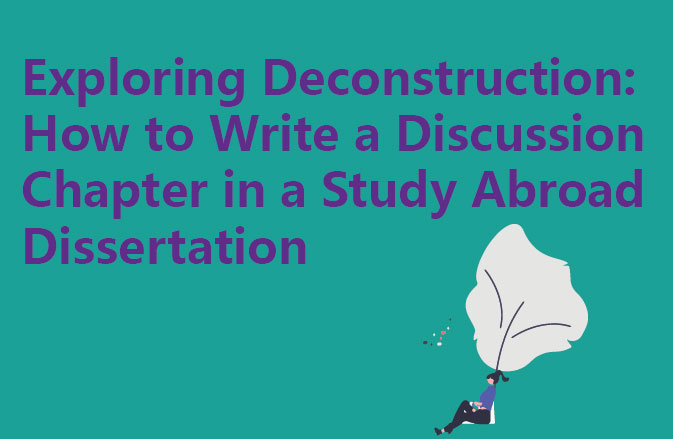A good thesis is undoubtedly an important cornerstone for students to grow up on the road of academic research. As the core part of the thesis, the “Discussion” chapter aims to explain the practical significance of the research results and its importance, but also requires the candidates to express their opinions and suggestions on the controversial points, and show the way of thinking in an interdisciplinary perspective. In this article, we will analyse the writing skills of the Discussion chapter in detail, which will help graduates to stand out in the dissertation writing.
Firstly, let’s have a deep understanding of the basic structure of this part. General Discussion chapter usually includes the following key issues:
Interpretation: Here, you need to list in detail the findings you have obtained in order to present them clearly to the reader. Make sure that your narrative is accurate, with no errors or even omissions.
Practical significance (implication): This is one of the main events. You need to elaborate on the impact and implications of your findings for academics, policy makers and other people. For example, it may influence the development of existing theoretical systems, or help to solve popular social problems.
Limitations: Some obstacles cannot be avoided in any research. Therefore, you need to deeply analyse the difficulties encountered in the research process and explain them accordingly. This section demonstrates your critical thinking and pragmatism.
Recommendations: Combine the previous three points and put forward some ideas or suggestions for future research. Remember to be objective and rational, and avoid subjective or radical statements.
Below, we will provide some practical tips on how to do this.
Abstract: In this section, you need to give a concise overview of the area of your research, the main findings, and the connections between them. This section helps readers to quickly understand the background and purpose of your research and guides them through the full paper.
Citing Literature and Review: before Discussion erects, you should fully consider the research work done by your predecessors, especially whether there are still novel ideas in your research. It is also reasonable to synthesise the information at hand in a review and show a comprehensive understanding of the existing research.
Subdivision of Comments: To better organise your argument, subdivide your paragraphs into sections based on your research framework, with each paragraph addressing a specific topic independently before describing the main idea of the essay in a unified way. In addition, each Discussion paragraph should also summarise the ideas and Discussion focus of the paragraph for later reference.
Clear language: The use of language in essay writing is crucial. Strive for concise language and avoid tedious sentence structure and excessive rhetorical devices. Try to express complex concepts in simple and understandable terms; use specialised terminology, but be aware of the scope and norms of terminology use and avoid using incorrectly associated words.
In conclusion, when considering the topic, it is important to pay attention to the writing of the “Discussion” chapter, which is regarded as the core of the dissertation. By continuously improving your research ability, we believe that you will be able to create remarkable academic achievements!




